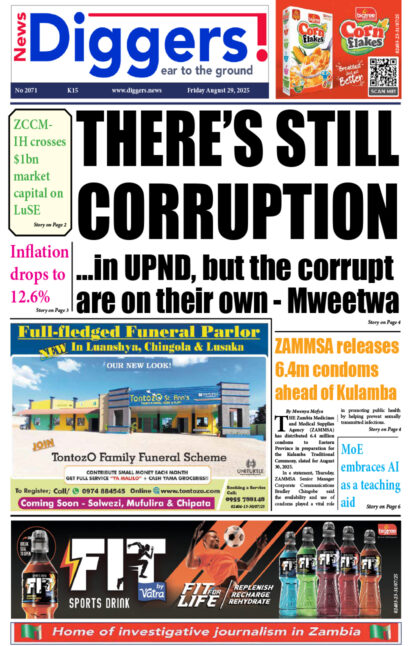Prisons Care and Counselling Association (PRISCA) executive director Godfrey Malembeka has called for the proper implementation of pro bono legal services to reduce Zambia’s congested correctional facilities.
And Human Rights Commission (HRC) spokesperson Mweelwa Muleya says there is need to decriminalize petty offences to avoid unnecessary detentions.
Commenting on Minister of Home Affairs Stephen Kampyongo’s revelation that Zambia’s prison population stood at 22,678 from a holding capacity of only 9,150, Malembeka said while pardoning incarcerated inmates was proving an effective decongestion strategy, there was need for government reinvigorate the use of pro-bono activities to enable inmates acquire legal assistance at a law cost as financial constraints had made it difficult for inmates to obtain legal assistance.
Pro-bono is a term that denotes work undertaken without charge, especially legal work for a client on low income.
“Congestion in correctional facilities it is too much! That is why I am thankful to the government looking at the number of people they have pardoned in eight years. About 8,000 (inmates) have been pardoned by the current government in eight years. That is a good decongestion strategy, but the legal systems are contributing a lot to these (conjestion) problems,” Malembeka said in an interview.
“People have no money; most of the people being incarcerated are poor, legal protection is very expensive. Pro bono is dead in Zambia! The only people that we are working with, who are found in districts and provinces, are the under-staffed legal aid board lawyers. You see, one area we actually need effective use of is pro bono. Very few people are benefiting from suspended sentences, community sentences and fines.”
He called for the decentralization of the High Court in all 10 provinces of Zambia.
“We need to reduce the backlog of people awaiting trial. We need to decentralize the high courts; we need judges to sit in all the 10 provinces. We only have four provinces where we have resident judges,” observed Malembeka.
And Muleya said there was need to decriminalize petty offences to avoid unnecessary detentions in order to reduce the population of inmates in correctional facilities.
“There is also need to decriminalize petty offences to avoid unnecessary detentions. There is need to Improve efficiency in the Judiciary delivery system, as the Judiciary is holding individual judges who had created inordinate delays in concluding cases and delivering judgements,” said Muleya in a separate interview in Lusaka.
























